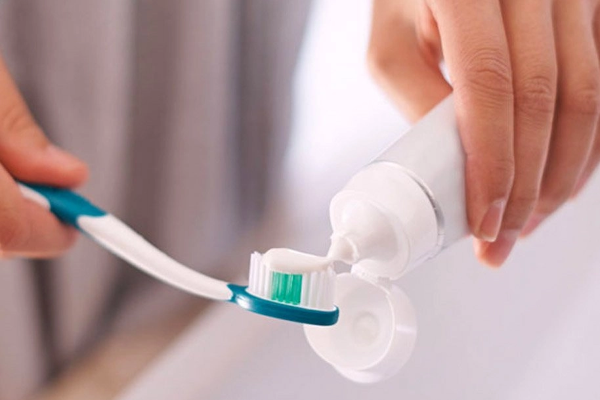Mouth ulcers, also known as canker sores, are painful sores that appear inside the mouth, often causing discomfort while eating, drinking, or speaking. While several factors can trigger them, such as stress, injuries, and certain foods, many people are unaware that toothpaste could also play a role. If you suffer from frequent mouth ulcers, choosing the right toothpaste can significantly reduce their frequency and severity. This guide will walk you through the essential considerations to help you find the ideal toothpaste to soothe and protect your oral health.
1. Understand What Mouth Ulcers Are
Before selecting the right toothpaste, it’s essential to understand what mouth ulcers are and what causes them. These small, painful lesions develop on the soft tissues inside the mouth and are not contagious. Common triggers include trauma (like biting your cheek), food sensitivities, vitamin deficiencies, hormonal changes, and even dental products. In some cases, the ingredients in your toothpaste may be irritating the mucous membrane, exacerbating or even causing mouth ulcers. Discover relief with Toothpaste for Mouth Ulcers by exploring expert tips and recommendations from SeaGlass Dental Care.
2. Avoid Toothpastes with Sodium Lauryl Sulfate (SLS)
One of the most crucial steps in choosing toothpaste for mouth ulcer sufferers is to avoid sodium lauryl sulfate (SLS). This ingredient is a foaming agent used in many commercial toothpastes to create that rich, sudsy lather. However, studies have shown that SLS can irritate the sensitive tissues of the mouth and increase the risk of developing ulcers.
Opt for SLS-free toothpaste instead. These are gentle on the mouth and less likely to strip away the protective mucous layer, which is essential in preventing sores. There are several brands available today that clearly label their products as “SLS-free,” making your shopping process easier.

3. Look for Soothing Ingredients
When dealing with mouth ulcers, choosing a toothpaste that contains soothing and healing ingredients can help relieve discomfort and promote faster healing. Aloe vera, chamomile, tea tree oil, and licorice root extract are some natural ingredients known for their anti-inflammatory and healing properties.
Toothpastes containing allantoin or beta-glucan may also help in soothing irritated tissues. These ingredients form a protective barrier and reduce inflammation. Always read the ingredient list and look for such components that support oral healing.
4. Choose Fluoride Wisely
Fluoride is vital for strengthening enamel and preventing cavities, but not all fluoride-based toothpastes are gentle. If you find that fluoride toothpastes worsen your ulcers, look for low-fluoride or natural alternatives like nano-hydroxyapatite, which provides similar cavity protection without irritation.
That said, don’t skip fluoride altogether unless recommended by your dentist. It plays a critical role in preventing tooth decay, especially in adults and children prone to cavities.
5. Avoid Harsh Flavors and Additives
Flavored toothpaste might be refreshing, but the strong flavors—especially cinnamon and mint—can sometimes aggravate mouth ulcers. Some individuals report increased sensitivity or a burning sensation due to artificial sweeteners and flavorings used in many mainstream products.
Instead, opt for mild, unflavored, or lightly flavored toothpaste. Toothpastes formulated for sensitive mouths often carry gentle flavors like mild mint or herbal blends that are less likely to cause discomfort.
6. Consider a Toothpaste Designed for Sensitive Mouths
Several oral care brands manufacture toothpaste specifically for people with sensitive mouths, canker sores, or allergies. These formulas typically avoid common irritants and include ingredients that help reduce inflammation, support tissue healing, and maintain oral pH.
Brands like Biotène, Squigle, TheraBreath, and Hello SLS-Free Toothpaste are well-known for their gentle and effective formulations. These can be a great place to start if you’ve been struggling to find relief from recurring ulcers.
7. Check for Anti-bacterial Properties
While not all mouth ulcers are caused by bacteria, infections can worsen them. Choosing a toothpaste with mild antibacterial agents can help reduce the bacterial load in the mouth, thereby promoting healing.
Look for toothpaste that contains zinc, triclosan (where allowed), or essential oils like eucalyptus or clove, which have natural antimicrobial benefits. These ingredients help maintain a clean oral environment, lowering the chance of secondary infection in ulcerated areas.
8. Consult with Your Dentist or Oral Health Professional
If you have recurring mouth ulcers or are unsure which toothpaste is right for you, it’s always a good idea to consult a dental professional. They can help identify the cause of your ulcers—whether it’s toothpaste, food allergies, nutritional deficiencies, or an underlying health issue—and recommend suitable products.
Your dentist might also suggest prescription toothpaste or oral rinses that are specially formulated to treat mouth ulcers and promote healing.
9. Pay Attention to Your Body’s Response
Once you switch to a new toothpaste, observe your symptoms closely. If your mouth ulcers become less frequent or heal faster, that’s a strong indicator that the toothpaste is working for you. Conversely, if symptoms persist or worsen, it may be necessary to try a different product or evaluate other potential causes.
Keep a journal to note any changes in your symptoms, what toothpaste you used, and any dietary or lifestyle changes. This can be helpful information for your dentist as well.
Conclusion
Choosing the right toothpaste when you suffer from mouth ulcers is not just about oral hygiene—it’s about comfort, healing, and prevention. By avoiding harsh ingredients like SLS, embracing soothing and healing formulations, and being mindful of additives, you can significantly reduce the frequency and severity of mouth ulcers.
Don’t underestimate the importance of consulting with your dentist and paying attention to how your body reacts to different products. With a little trial and error and the right knowledge, you can find a toothpaste that supports both your dental health and your overall well-being.
